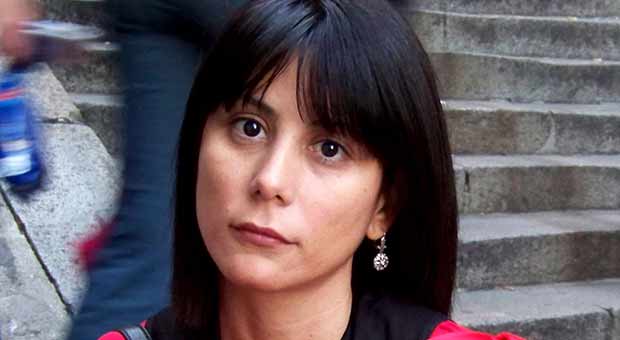We should talk of the time that we don’t see pass.
Patrick Chamoiseau , “Texaco”
Wendy tells me, when I ‘m already leaving , to please ask Darsi Fernández her words with which minutes before she had presented her latest novel , “Posar desnuda en la Habana. Diario Apócrifo de Anaïs Nin” (posing naked in Havana, apocryphal diary of Anais Nin)(Letras Cubanas, 2014 ) to put them in my work. I know she tries to circumvent the performative quality … the transience of words that are difficult to know if they were not recorded. I know she wants the text I publish to be a revolutionary discourse that perpetuates the original sense of the term.
Wendy Guerra is interested in Darsi Fernández speech that does not speak of her many awards nor sells her new novel for possible structural or aesthetic values. Neither anticipates feminist criticism that place in a tradition of storytellers legitimized in the Western canon. Wendy wants a professed for years friendship to be made public. And to talk about her love for Cuba, her insurmountable will of being more than those who leave. Her obsession, her island, which keeps her most intimate memories, and which she strives to reinvent in her novels. Of her eagerness to also change what should be changed.
She wants people talking of her sensitivity, her willfulness by the things that she believes beautiful and fair – rescue the identity of someone already dead, for example, or those torrents of emotion that flow from having before her a book of marriage signatures before hackneyed by Anaïs . Or her appreciation to those that for twelve years helped her realize a project…
And so I give in:
“Of the things that have been said of this novel since it was published by Alfaguara in 2010, almost all celebrating it, I like to focus on one:” The character and her avatars have allowed Wendy Guerra to express a devotion to Cuba that she attributed to Anaïs Nin. ” I guess by now no doubt that the true character of all books by Wendy Guerra is Cuba, her true and ultimate obsession, the new corpus she has incarnated, probably forever. “
And not conform by only those words, I am seeking my answers:
How do you (I feel close to her age for her bangs, clothing …) relate to literature?
The literature for me is related to maternal education. She demanded that I always have a book handy, and a notebook to write what I thought of these books. It is an eternal dialogue with my mother.
And how much of you is in your characters, or your novels?
The first novel and some of the later ones, have their own spine. But they have a lot of improvisation and a lot of fiction. I have never written an autobiographical novel. I have written novels that have much, much, a very high percentage of autobiography. But they are not fully autobiographical.
And your poetry in Posar Desnuda en La habana?
This first novel, that chronologically, from the market point of view, it is not my first novel – has a lot of poetic prose. Especially the first and last pages. It’s a novel of images, and that makes it poetic.
Do you think your writing foreshadows an ideal reader?
No. When I started to realize the phenomenon of Todos se van and people who bought my books, I thought: thank goodness I never thought of writing for someone specific, because old people and children and youth are buying it. I think you write to say what you feel but you never know who is going to identify himself with that. The reader is a ghost one never knows.
Do you feel inserted or you try-within some tradition or line of women’s writing?
I am a person who really loves Dulce Maria Loynaz, respects Marruz Fina García, Reina María Rodríguez. But I also like Gastón Baquero and I am a fan of Sigfredo Ariel, Antonio José Ponte. I think if I can take to my pages the best Cuban literature, I will die happy.
What does it mean for you to publish again in Cuba? I guess you have high expectations.
Well, this is a very important step for me. I was silenced in Cuba for seven years, and I am translated into thirteen languages, but not to the “Cuban.” This room full people indicates that they are interested in my work, and hopefully when they take it home they would like to get another one.
I think my country is a learner. We learned together, my country and I, to understand each other, and walk forward.
I write and think. Yes, my country is becoming another….
By : Camila Cabrera Rodríguez










